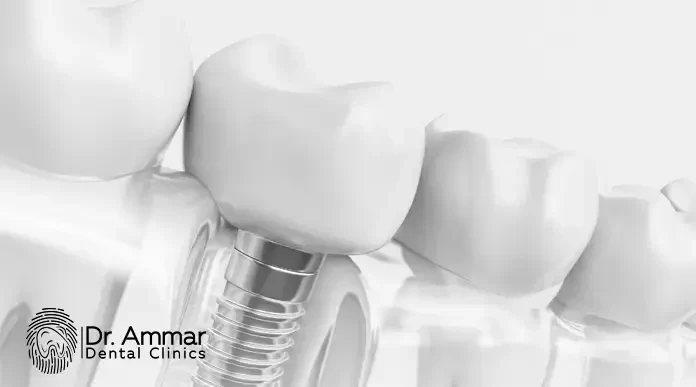Instructions After Tooth Extraction
After a tooth extraction, it is important to follow certain instructions to ensure proper wound healing and to avoid complications. Whether the extraction was due to severe decay or other dental issues, the recovery period requires special care to maintain oral and dental health. Therefore, in this article, we will explain the instructions after tooth extraction, when to eat after tooth extraction, and the strongest painkiller after wisdom tooth extraction. We will also answer many questions related to this issue with Dr. Ammar – Specialist in Dental and Cosmetic Medicine – so keep reading this article until the end to learn all the details.
Tips Before Tooth Extraction
Before discussing instructions after tooth extraction, let us first look at some tips that a patient should follow before extraction to get the best results. These tips include:
-
Treating any existing condition before the extraction, especially infections, to prevent complications after the procedure.
-
Properly cleaning the teeth before going to the dentist.
-
There is no need to fear the procedure, as tooth extraction is a routine process performed regularly by dentists using modern techniques to ensure comfort and minimize pain.
-
Avoid taking medications that increase blood thinning before the procedure, as they can delay wound healing.
-
Informing the dentist of any health condition, such as heart valve problems or immune system issues.
-
Informing the dentist of all medications, herbs, or even supplements being taken.
-
Eating well before the extraction, as patients may find it difficult to eat immediately afterward, unless the dentist advises otherwise.
All these instructions help make the extraction process simple and safe for the patient. In addition, patients must follow instructions after tooth extraction to ensure the best possible recovery and avoid potential health problems.
When Does Pain Subside After Wisdom Tooth Extraction Without Surgery?
The wisdom tooth is one of the most complex teeth to extract, as it often requires surgical removal. However, in some cases, the dentist can remove it without surgery. Wisdom teeth problems are common and often troublesome, which makes extraction frequently necessary.
As for when pain subsides after non-surgical wisdom tooth extraction, it varies from case to case depending on several factors. Generally, pain starts to ease gradually within 24 to 72 hours, though mild discomfort may persist for a few days. Severe pain, however, should decrease significantly within the first 48 hours.
If severe pain continues for more than three days, or if there is swelling or other concerning symptoms, it is important to consult the dentist to rule out complications.
Instructions After Non-Surgical Wisdom Tooth Extraction
There are specific instructions after tooth extraction, but wisdom tooth extraction requires special care. These include:
-
Rest for two days after the extraction and avoid strenuous activities.
-
Do not touch the extraction site.
-
Rinse with salt water after 24 hours.
-
Apply cold compresses on the extraction site.
-
Bite on gauze to control bleeding for 1–2 hours after extraction.
-
Avoid touching the wound with the tongue or any solid object.
-
Avoid hard foods.
-
Take the medications prescribed by the dentist.
General Instructions After Tooth Extraction
After tooth extraction, the dentist provides essential instructions to ensure smooth recovery and prevent complications. These include:
-
Apply cold compresses on the cheek at the extraction site for 20 minutes to reduce pain and swelling.
-
Bite on gauze at the extraction site for one hour.
-
Do not touch the extraction site for at least three days.
-
Avoid hot food and drinks or sun exposure for 12 hours.
-
Sleep with your head elevated to reduce bleeding and pressure.
-
In case of heavy bleeding, bite on gauze soaked with tea, as tea contains substances that help stop bleeding.
-
Avoid using mouthwash for at least one day.
-
Avoid strenuous activities for two days.
After one day of tooth extraction, further instructions include:
-
Rinsing with warm salt water.
-
Maintaining daily oral hygiene.
-
Avoid brushing the extraction site for at least three days.
-
Stop smoking.
-
Avoid chewing on the extraction side in the first few days.
-
Take prescribed medications.
Patients must visit the dentist if anything abnormal occurs at the extraction site.
When Does Bleeding Stop After Tooth Extraction?
Bleeding may continue for several hours after extraction, but it can be reduced by biting on gauze for an hour and applying cold compresses. Avoid brushing the teeth near the site immediately.
Dentists usually advise stopping blood thinners before extraction to minimize bleeding. Patients must inform their dentist about their medical history to prevent excessive bleeding.
When Does the Gum Heal After Tooth Extraction?
The healing time of the gum after extraction depends on several factors, including the method of extraction, the number and size of extracted teeth, and whether complications occur. Other factors include age, smoking, and adherence to instructions.
Generally, the gum starts healing within 1–3 weeks, during which new tissue forms and the gum regains its shape. However, complete bone healing may take several months, especially in complicated extractions.
When Can I Eat After Tooth Extraction?
You can eat after the bleeding stops and the blood clot stabilizes, usually after 2–3 hours. It is recommended to eat soft and cold foods at first, such as yogurt, juices, or warm (not hot) soup. Avoid hard, hot, or spicy foods for at least two days.
Eating and Drinking After Tooth Extraction
The main instructions include:
-
Do not eat for at least two hours. Start with soft or cold food afterward.
-
Avoid hot food and drinks in the first few days.
-
Do not use a straw for at least one day.
-
Avoid chewing on the extraction side during the first few days.
-
Avoid hard foods such as nuts.
Drinking Cold Water After Tooth Extraction
Cold water helps soothe pain and reduce swelling, but avoid drinking forcefully or using a straw to prevent dislodging the blood clot. Wait 24 hours before rinsing gently with water. Consult the dentist if pain or bleeding persists.
Pain After Tooth Extraction
Pain is normal after extraction due to tissue healing and clot formation. It usually subsides gradually over several days and can be managed with prescribed painkillers. If pain persists or worsens, consult the dentist.
Strongest Painkiller After Wisdom Tooth Extraction
Pain is common after wisdom tooth extraction. Dentists usually prescribe over-the-counter medications such as ibuprofen or paracetamol. Potassium diclofenac (Cataflam) is considered stronger than ibuprofen and paracetamol in relieving pain. Always follow the dentist’s instructions regarding painkillers.
When Does Bleeding Stop After Tooth Extraction?
Bleeding usually stops within 1–2 hours if pressure is applied with gauze. Mild bleeding may continue for 24 hours. If bleeding is heavy or prolonged, contact the dentist immediately.
How Long Does Pain Last After Tooth Extraction?
Pain usually lasts 1–3 days and decreases gradually. Mild discomfort may persist for up to a week. Severe or prolonged pain should be evaluated by a dentist.
When Should I Remove the Gauze After Extraction?
Gauze should be placed over the wound for one hour after extraction. If bleeding recurs, replace it with new gauze until it stops.
How to Clean Food From the Extraction Site
Rinse gently with warm salt water after 24 hours. Use a soft toothbrush around the site, but avoid the wound. Do not use sharp tools. Consult your dentist if food debris persists.
Does Salt Water Stop Bleeding After Tooth Extraction?
Salt water does not immediately stop bleeding, but it helps disinfect the wound and speed healing. It can be used as a mouth rinse after 24 hours. To stop bleeding immediately, apply gauze with firm pressure.
When Does the Bone Heal After Tooth Extraction?
Bone healing takes 3–6 months. Soft tissue heals within 1–2 weeks. Healing time depends on age, health, and the type of extraction. If you plan for dental implants, consult your dentist to determine the right time.
Best Dental Extraction Center in Egypt
It is important to choose the best dental extraction center in Egypt for safe and effective treatment. Dr. Ammar Clinics are among the best because:
-
A team of specialized dentists experienced in simple and complex extractions.
-
Use of advanced technology and equipment to minimize pain and ensure optimal results.
-
Different anesthesia options for patient comfort.
-
Comprehensive health evaluation before extraction.
-
Full care and instructions after extraction for fast healing.
-
High standards of hygiene and sterilization.
-
Excellent reputation based on patient experiences.
-
Convenient location for easy access.
All these factors make Dr. Ammar Clinics one of the best dental centers for extractions.
See Before and After Cases With Dr. Ammar
In conclusion, following instructions after tooth extraction is essential to ensure the best recovery and avoid complications. Do not hesitate to contact Dr. Ammar Clinics – Specialist in Dental and Cosmetic Medicine – to book an initial consultation and have your teeth extracted with precision.

